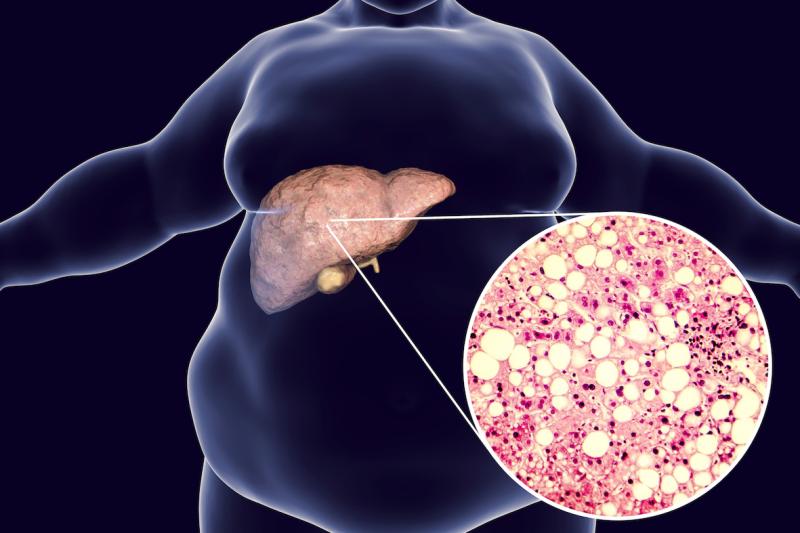
Lifestyle factors, such as weight gain, smoking and exercise, appear to affect the development and remission of nonalcoholic fatty liver disease (NAFLD), reports a recent study.
Researchers performed a longitudinal cohort study including 1,421 participants (mean age, 53.0±11.9 years; 50.0 percent male) whose only cause of liver disease was NAFLD. At baseline, 34.1 percent (n=484) were diagnosed with NAFLD. Participants were followed for a mean of 4.6±2.8 years, during which time they had a mean of 4.8±2.7 checkup visits each.
Over the follow-up period, 11.1 percent (n=104) of the 937 patients who were free of NAFLD at baseline developed the disease at a rate of 2.4 percent per year. On the other hand, 26.2 percent of those with NAFLD at baseline achieved remission.
Multivariate analysis found that males were at a significantly greater risk of developing NAFLD (adjusted odds ratio [OR], 2.07, 95 percent confidence interval [CI], 1.35–3.21). The same was true for a longer follow-up period (adjusted OR, 1.11, 1.03–1.20), having dyslipidaemia (adjusted OR, 2.39, 95 percent CI, 1.25–4.56) and smoking cessation (adjusted OR, 2.86, 95 percent CI, 1.24–6.62).
In the study, participants who quit smoking were more likely to demonstrate large gains in weight (p<0.001) which, in turn, correlated with a stronger risk of NAFLD (p<0.001). Failing to lose weight was likewise a significant risk factor (adjusted OR, 0.30, 0.18–0.50). In contrast, weight loss significantly increased the chances of NAFLD remission (adjusted OR, 2.83, 95 percent CI, 1.80–4.44).